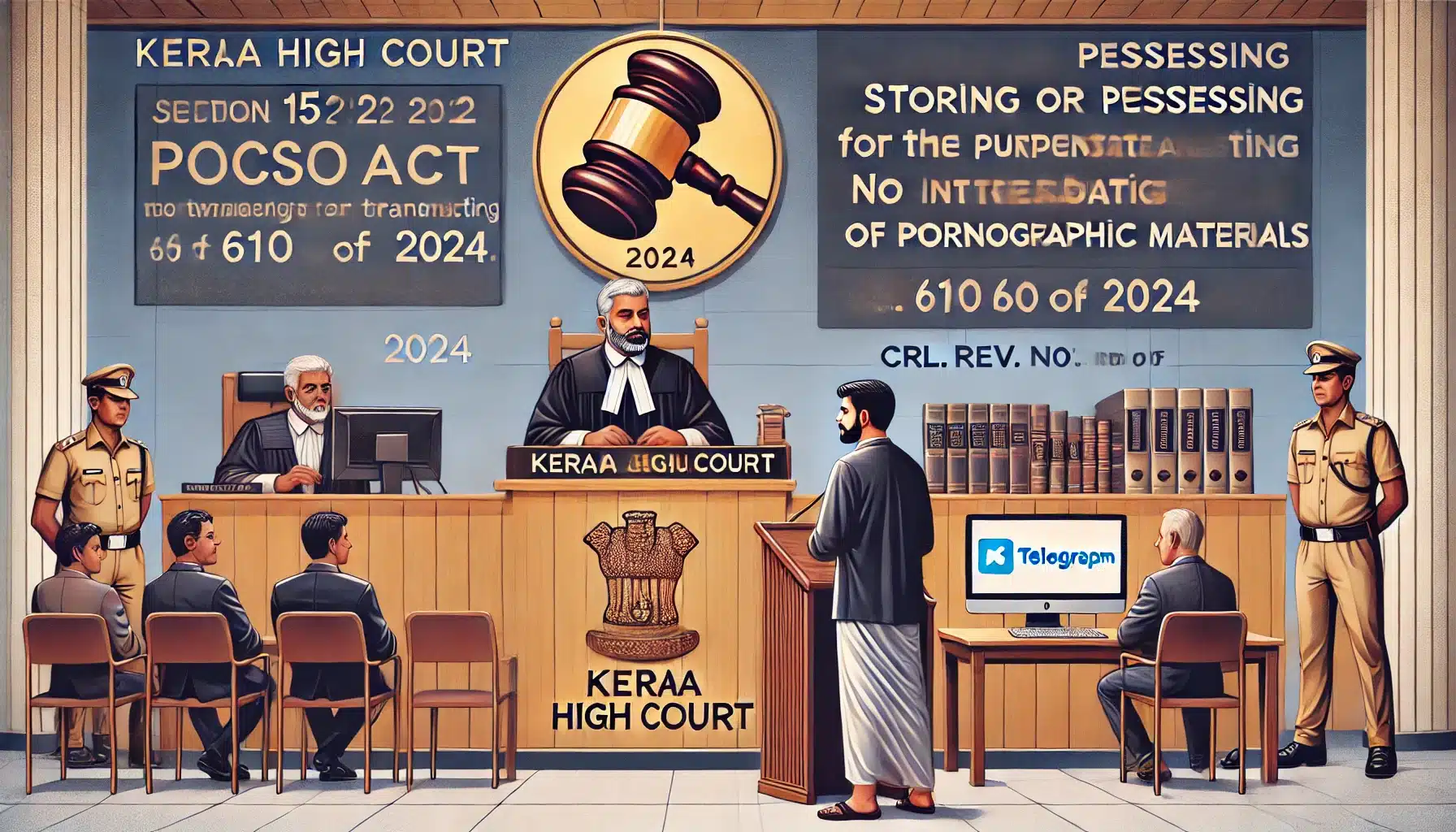In this case, the Kerala High Court overturned a conviction under Section 15(2) of the POCSO Act, 2012, and Section 67(B)(b) of the IT Act, 2000. The court found no evidence that the accused intentionally downloaded or distributed child pornographic material, leading to his discharge.

LITT Law for lawyers and teams
Citation: Crl. Rev. Pet No. 610 OF 2024
Date of Judgment: 19th June, 2024
Court: Kerala High Court
Bench: A. Badharudeen (J)
Facts
- On 26.02.2023, around 1400 hours the accused stored and possessed pornographic materials involving children which were downloaded from Telegram X Application.
- So, he was prosecuted under Section 15(2) of the Protection of Children from Sexual Offences Act, 2012 and Section 67(B) (b) of the Information Technology Act, 2000.
Decision of the Fast Track Special Court-II, Thrissur
Special judge of the fast track court held the accused guilty under Section 15(2) of POCSO Act, 2012 and Section 67(B) (b) of the IT Act, 2000. Revision petition was filed in the Kerala high court against this decision under Section 397 read with 401 of the Code of Criminal Procedure, 1973.
Decision of the Kerala High Court
Court observed that there were no materials to show that the petitioner intentionally downloaded, browsed or recorded the same. Moreover, there were no materials to show that the petitioner had either shared, transmitted, propagated, displayed or distributed the same in any manner. So, the revision petition was allowed and the accused was discharged.
Key legal issues discussed
1. Whether Section 15(2) of the Protection of Children from Sexual Offences Act, 2012 could be attracted in the present case?
No
Court observed that under Section 15(2) of the POCSO Act, storing or possessing pornographic materials in any form involving a child for the purpose of transmitting or propagating or displaying or distributing in any manner is an offence. Therefore, mere storing or possessing pornographic materials by itself is not an offence. In order to bring home an offence under Section 15(2) of the POCSO Act, there should be materials to show that the accused stored or possessed pornographic materials for the purpose of transmitting or propagating or displaying or distributing the same.
According to chemical analysis report, it could be noticed that there was no evidence available in this matter to show transmitting or propagating or displaying or distributing pornographic materials. Thus, the offence under Section 15(2) of the POCSO Act could not be made out.
2. Whether Section 67(B) (b) of the Information Technology Act, 2000 could be attracted in the present case?
No
Publishing, transmitting or causing any material in electronic form which depicts children engaged in sexually explicit act or conduct or creation of text or digital images etc. are the ingredients under Section 67B of the IT Act also. One thing that is different is the “downloading”. Court referred to Manuel Benny v. State of Kerala & Anr.[1], where the Kerala High Court held that,
“In order to attract the offence under Section 67B of the IT Act, the videos or material has to be voluntarily downloaded into any device. In other words, there should be intention on the part of the petitioner to download the material in order to view it. The learned Additional DGP submitted that the contents transmitted in the ‘Telegram’ can be automatically downloaded in the mobile phone by default. Hence, it cannot be said that the petitioner has intentionally downloaded the material, considering the features of the ‘Telegram’ App.”
In the present case, there were no materials to show that the petitioner intentionally downloaded or browsed or recorded the same. Thus, it does not fall under Section 67(B) (b) of the IT Act.
[1] [2022 KHC Online 3437].



